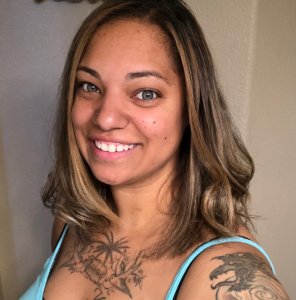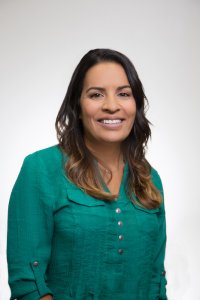Staff Spotlight: Saluting the Veteran Program
“Veterans are my heart,” says Alana Conley, who talks about the soft spot she has for members of the military. It derives from a common experience. She did her own tour of duty in the army for four and one-half years. At the end of her service, she returned to college on the GI Bill to finish her undergraduate studies in social work and go on for a master’s degree in the same discipline.
With these academic credentials in hand, next came the requisite question: what do I want to do for the rest of my life? She drew up a short list of the three areas of interest that held the most meaning for her. They were: Veterans, addiction, and domestic/social violence. She thought: wouldn’t it be ideal to be able to combine them into one job?
Veteran Program at Desert Hope

Desert Hope’s Alana Conley
It happened through American Addiction Centers (AAC). As a therapist at the Desert Hope Treatment Center in Las Vegas, she fills a central role that feeds her heartstrings and assists her military “brothers and sisters.” It all revolves around the Veteran program residential treatment program.
This robust track targets the needs of ex-military and first responders. The tightly structured program aims to help them overcome substance use disorders. “But it’s much more than that,” Alana says, “There are many layers that have to be peeled away to set these clients on the road to recovery.” For that reason, the work involves deep-rooted processes: exploring inner selves and confronting issues.
When clients learn about Alana’s military background, it builds rapport. There are shared experiences and a mutual understanding, which create a comfortable and safe environment to open up to do the hard work of the program. Clients are challenged in their activities and assignments, the main one of which is to write a narrative of their life.
Their events and experiences are building blocks along the path to healing and sobriety. “We tell them to look at things straight in the eye,” says Alana. “Gaining insights enables clients to reframe and refocus their thoughts. The past is the past.”
What’s more, much of this is done in a group setting. The clients form bonds and support one another. They realize they are not alone and build connections. They motivate one another and that goes for Alana too. “My role at Desert Hope is not a job or a career. It’s a gift.”
Meet an Architect of the Program
Across the country, another member of the AAC staffer weighs in on this program. Yaritza Semenuk should. She designed the Veteran program for the Recovery First facility in Fort Lauderdale, Florida.
Yaritza has ties to the military through her brother and father-in-law, who both served. So when she had an opportunity to build the Veteran program from the ground up, she went right to it. She applied her own specialized clinical training to designing the curriculum and then some. That last phrase refers to exhaustive research she did reviewing VA websites with their offerings as well as a range of related resources. Although the program has run for more than two years, she continues to fine tune it, based on new and emerging needs of clients. She also works with VAs to integrate elements they use into the Veteran program.
Veteran Program at Recovery First
Treatment revolves around the “Eight Dimensions of Wellness,” a holistic approach. “We refer to it as a ‘wraparound service.’ It touches the intellectual, physical, financial, and others aspects of our military and first responder clients. It’s all inclusive,” she notes.

Recovery First’s Yaritza Semenuk
The program combines mental health treatment with drug recovery. Above all, it’s trauma-informed. Yaritza explains: “These two facets closely link and fall under the heading of co-occurring disorders. You can’t address one without the others. Treatment for both goes hand in hand.” So does family therapy. As such, the program integrates family as part of treatment by hosting a two-day session every three weeks for family members to come onsite. “Family is so important,” in Yaritza’s words.
Clients engage in groups and individual sessions at least six hours per day. “Actually, we regard the Veteran program as a 24/7 program,” says Yaritza. “In this sense, clients always are in session as residents at First Recovery for a minimum of 30 days.” While there, they receive education and work their way through posttraumatic stress disorder (PTSD), military sexual trauma (MST), and suicide prevention, for example. Upon discharge, they have a safety plan in hand.
On that note, Yaritza shares remarks clients have made to her as they move through the latter stages of the program. “I matter. I’m worth it,” is something she hears. A wife of an alum said that she is “forever grateful to have her husband back” and not lose him as an overdose victim. One alum, who mastered eye movement desensitization reprocessing (EMDR) to address PTSD, now runs the Wounded Warrior Project.
Veteran Treatment Program at AAC
When she started the Veteran program at this location, did she imagine it would come together as it has? She says, “From its roots as a small program helping a handful of Veterans, we are touching the lives of many. It has impact and encourages us to continue to invest in those who have committed to serve us.”

